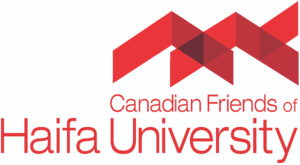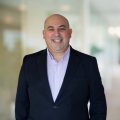
Interviewing Ariel Karabelnicoff – National Executive Director Canadian Friends of the University of Haifa

After 20 months of relentless attacks and fresh missile strikes on Haifa and its surrounding communities, University of Haifa has launched Home Again – a bold $60 million initiative focused on long-term recovery and resilience in Israel’s North.
Interviewer: The University of Haifa just launched a major initiative called Home Again. Can you tell us what sparked this campaign?
Mr. Karabelnicoff, National Executive Director Canadian Friends of University of Haifa:
Absolutely. Home Again was born out of necessity. What began as a recovery mission after the October 7 attacks has become an urgent national imperative,more so following the recent ( a month ago) direct missile strikes that caused further widespread displacement, and the collapse of basic public services. The trauma has been immense.
This $60 million campaign is our bold response: a coordinated, science-based effort to restore lives, communities, and the regional economy.
Interviewer: That’s a significant investment. What makes Home Again different from other recovery efforts?
Mr. Karabelnicoff: as Prof. Gur Alroey, President of University of Haifa said, It’s not just a relief effort – it’s a long-term resilience strategy for northern Israel. We’re grounding everything in real-time research, local partnerships, and community priorities. University of Haifa is uniquely positioned to lead this because we combine academic insight with on-the-ground action. This isn’t theory – it’s transformation.
Interviewer: What are the main focus areas of the campaign?
Mr. Karabelnicoff:
The campaign was built around three core pillars:
- Emotional and Physical Rehabilitation
The invisible wounds of trauma are everywhere—PTSD among residents has jumped 33%. Kids, parents, seniors—they’re all affected. We’ve launched 24/7 hotlines, mobile therapeutic units, and we’re training responders through our Cheryl Spencer Nursing School. A proposed Community Rehabilitation and Research Center will integrate clinical care and academic research in a way Israel hasn’t seen before. - Restoring Economic Stability
Unemployment in the North has spiked nearly 50%. We’re stepping in with workforce training for nurses, trauma specialists, educators, and environmental recovery professionals. And we’re offering reskilling programs for discharged soldiers—connecting them to sustainable marine industries along the coast. - Investing in Community Futures
We’re building trust and social cohesion through initiatives like legal aid clinics, AI-powered social services, and Jewish-Arab workplace integration. These are grassroots programs designed to rebuild civil society where it’s been deeply shaken.
Interviewer: You mentioned that more than 68,000 people were displaced. What does recovery look like for them?
Mr. Karabelnicoff:
That number is staggering—and it reflects the largest internal displacement Israel has seen in decades. Today, less than half of those people have returned home. Recovery means mental health support, livelihood restoration, and a sense of belonging. Through Home Again, we’re helping them reclaim their communities—not just physically, but emotionally and economically.
Interviewer: Can you share a specific example of how philanthropy is driving this campaign?
Mr. Karabelnicoff:
Certainly. Gideon Herscher, VP of Transformational Philanthropy at University of Haifa just told our team about one of the most inspiring examples of how philanthropy is driving this campaign, a US$5 million commitment from the Frieze Family Foundation in Boston. They’re helping us launch the Center for Shared Society—a hub dedicated to research, learning, and engagement initiatives that bring Jewish and Arab residents together. It embodies the kind of partnership that Home Again depends on—one rooted in hope, social impact, and long-term commitment.
Interviewer: Why is the University of Haifa taking such a central role in recovery?
Mr. Karabelnicoff:
University of Haifa has always believed its job is not only to educate but to lead—especially in times of crisis. Haifa is a deeply diverse city, and the University of Haifa reflects that. We’ve long championed social inclusion, environmental responsibility, and evidence-based policy. Now, the University is turning that mission outward to support the North—one of the most vulnerable yet strategic regions in Israel.
Interviewer: And what’s your message to the community and to all your friends and supporters?
Mr. Karabelnicoff:
This is a moment to act. The North of Israel has endured unimaginable hardship, but it’s also where resilience is taking root. Every donor, every partner, every supporter helps create the conditions for people to come home again— to rebuild their lives with dignity, with opportunity, and with hope for the future.






